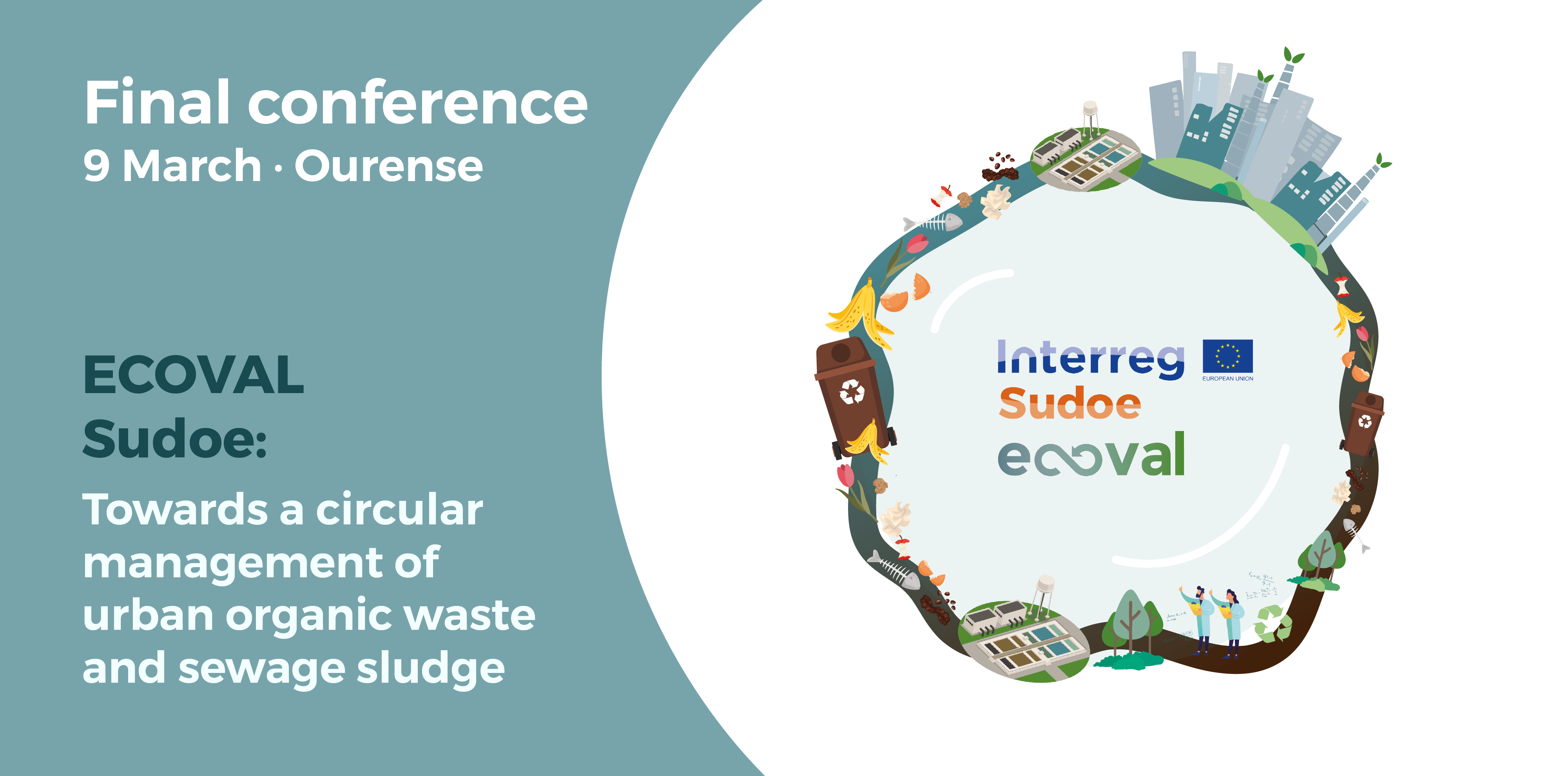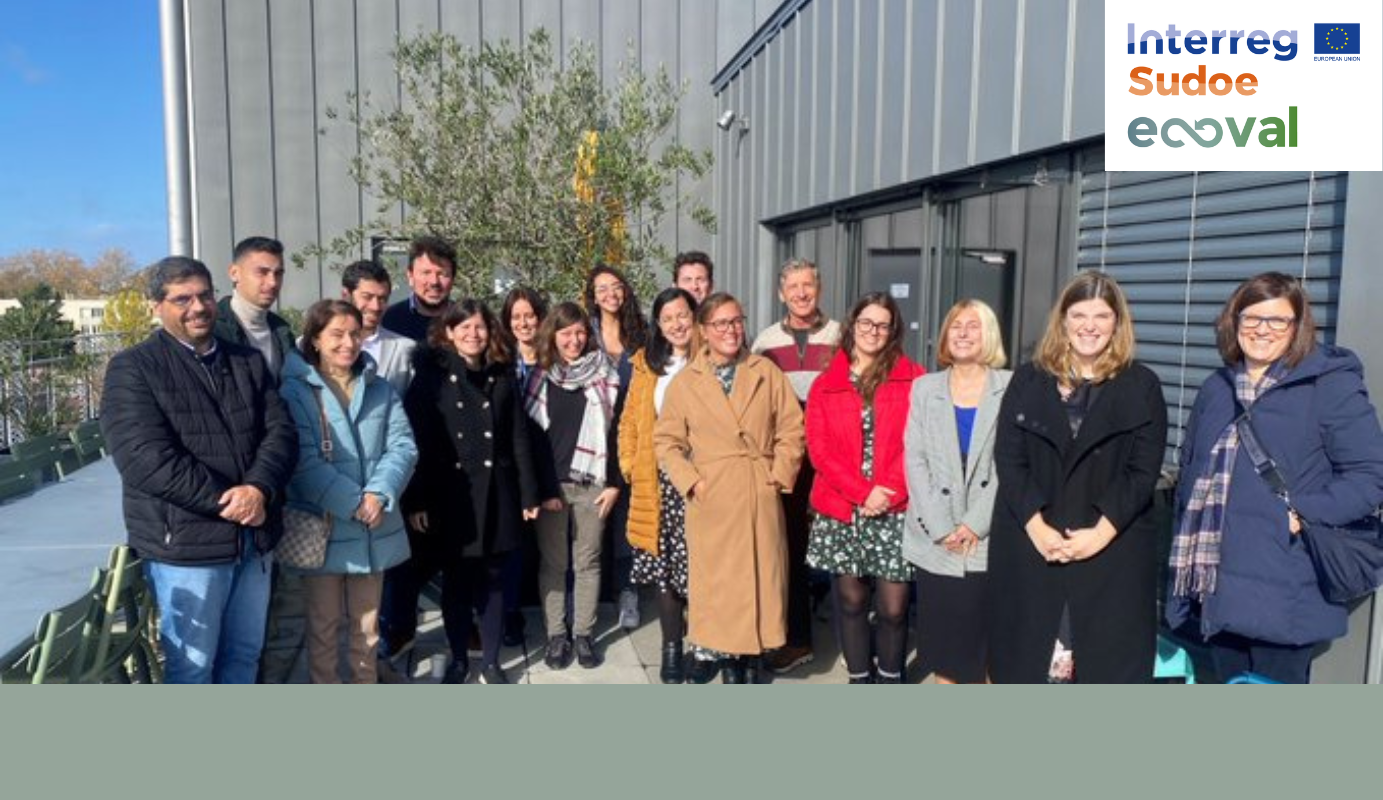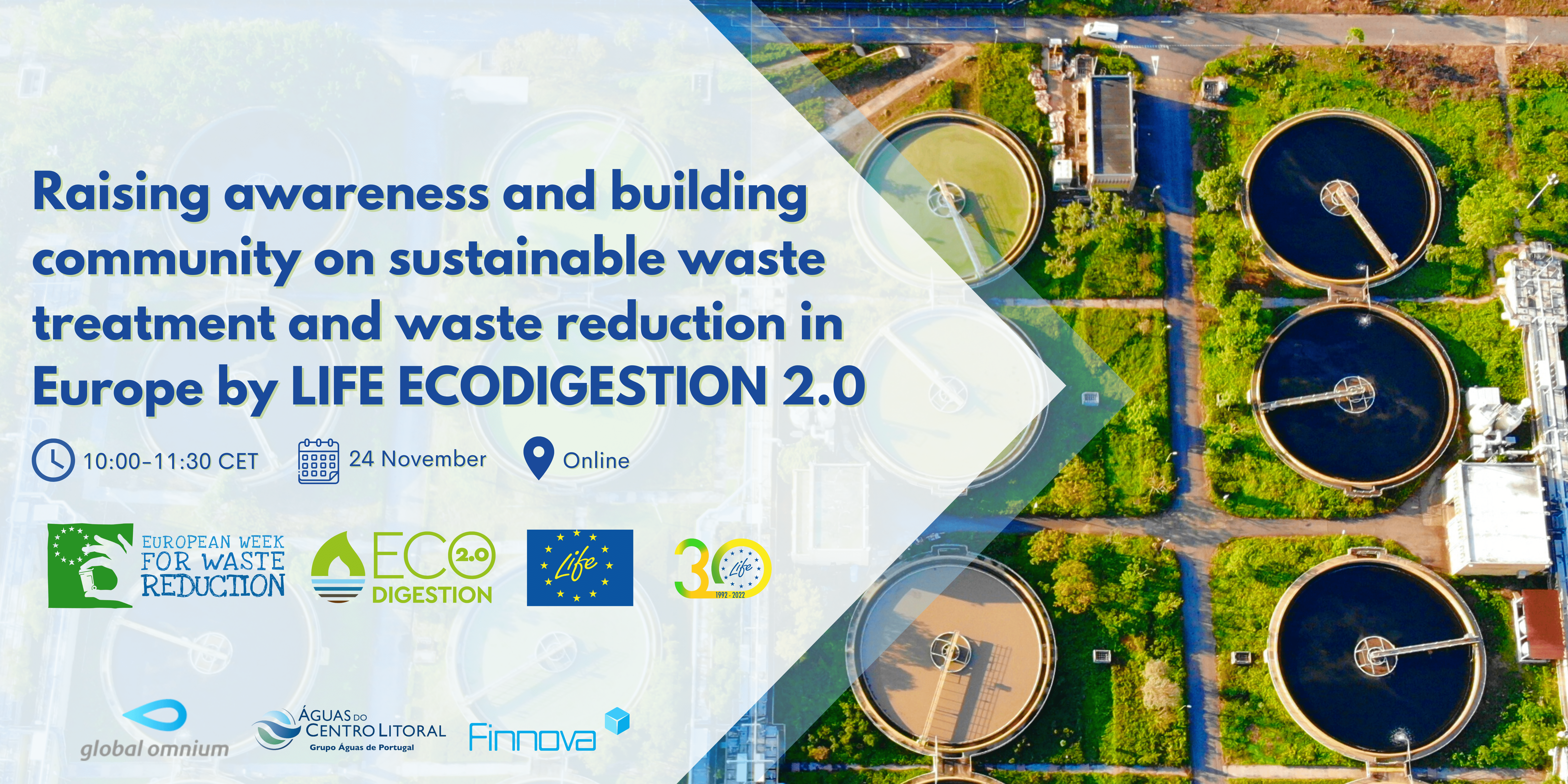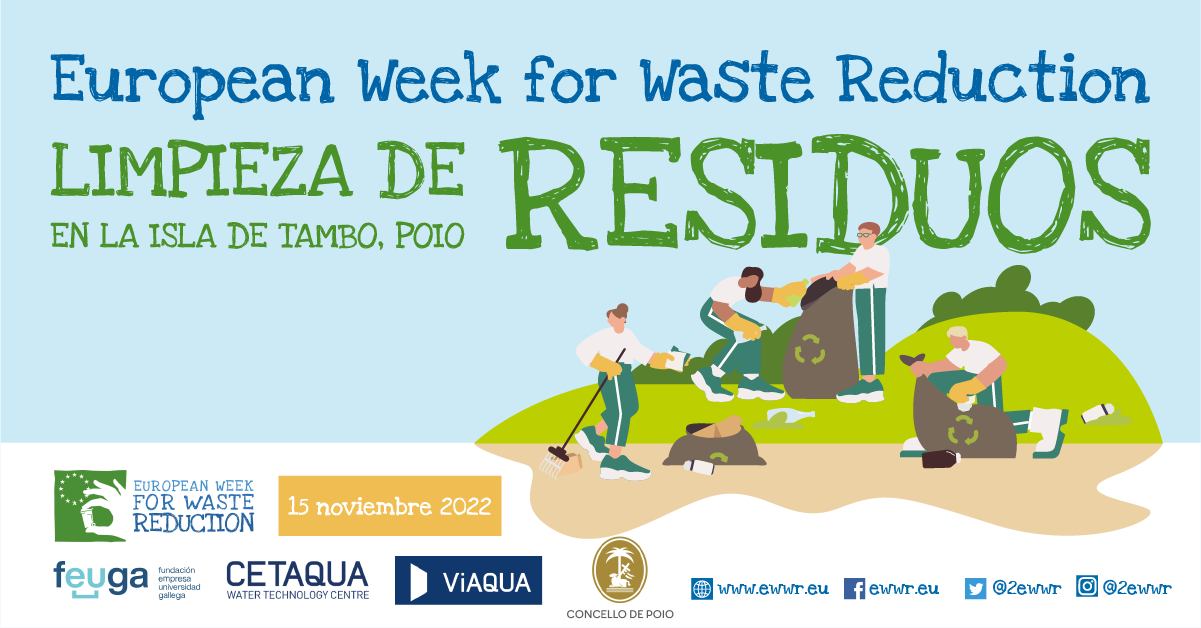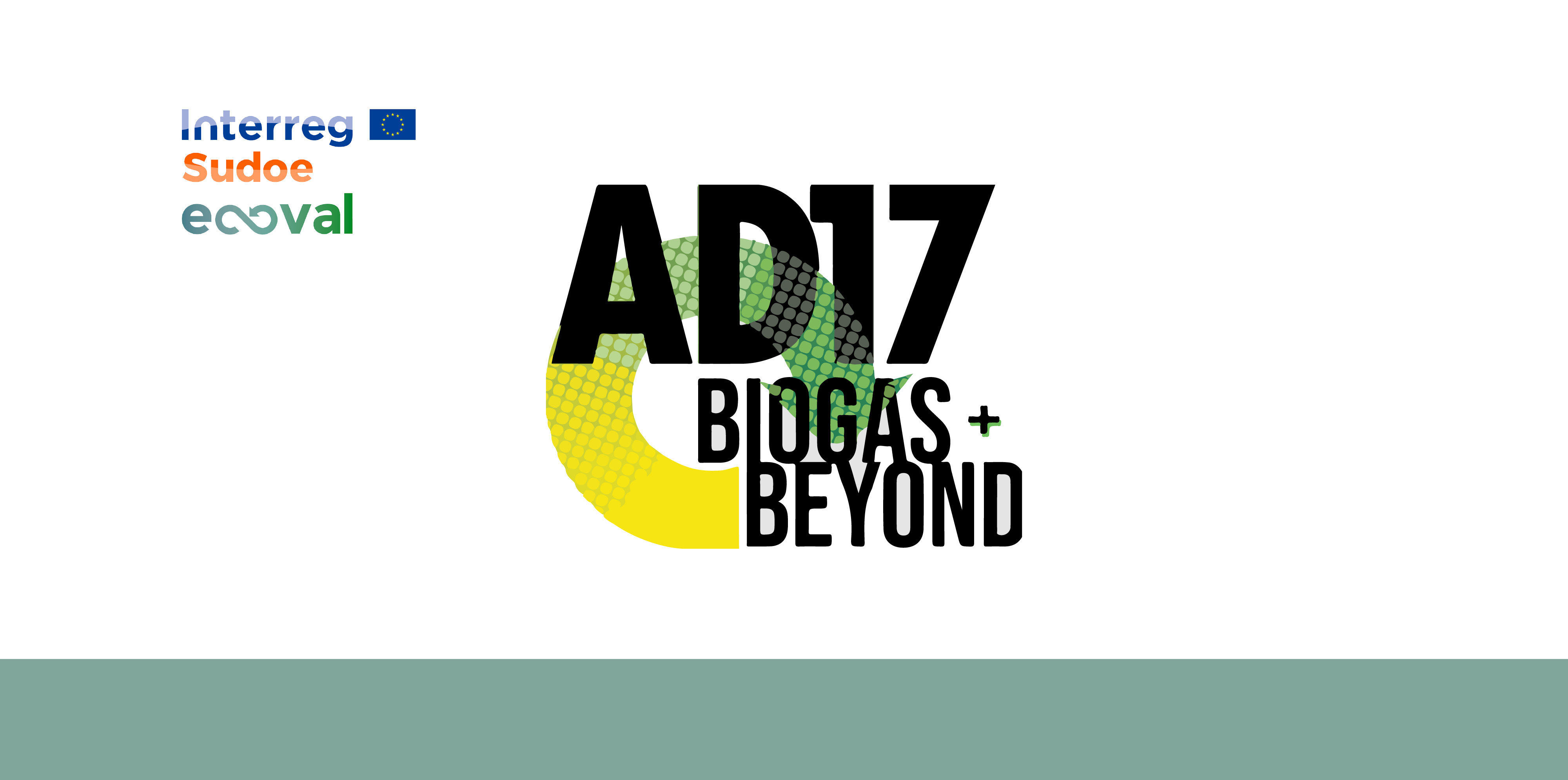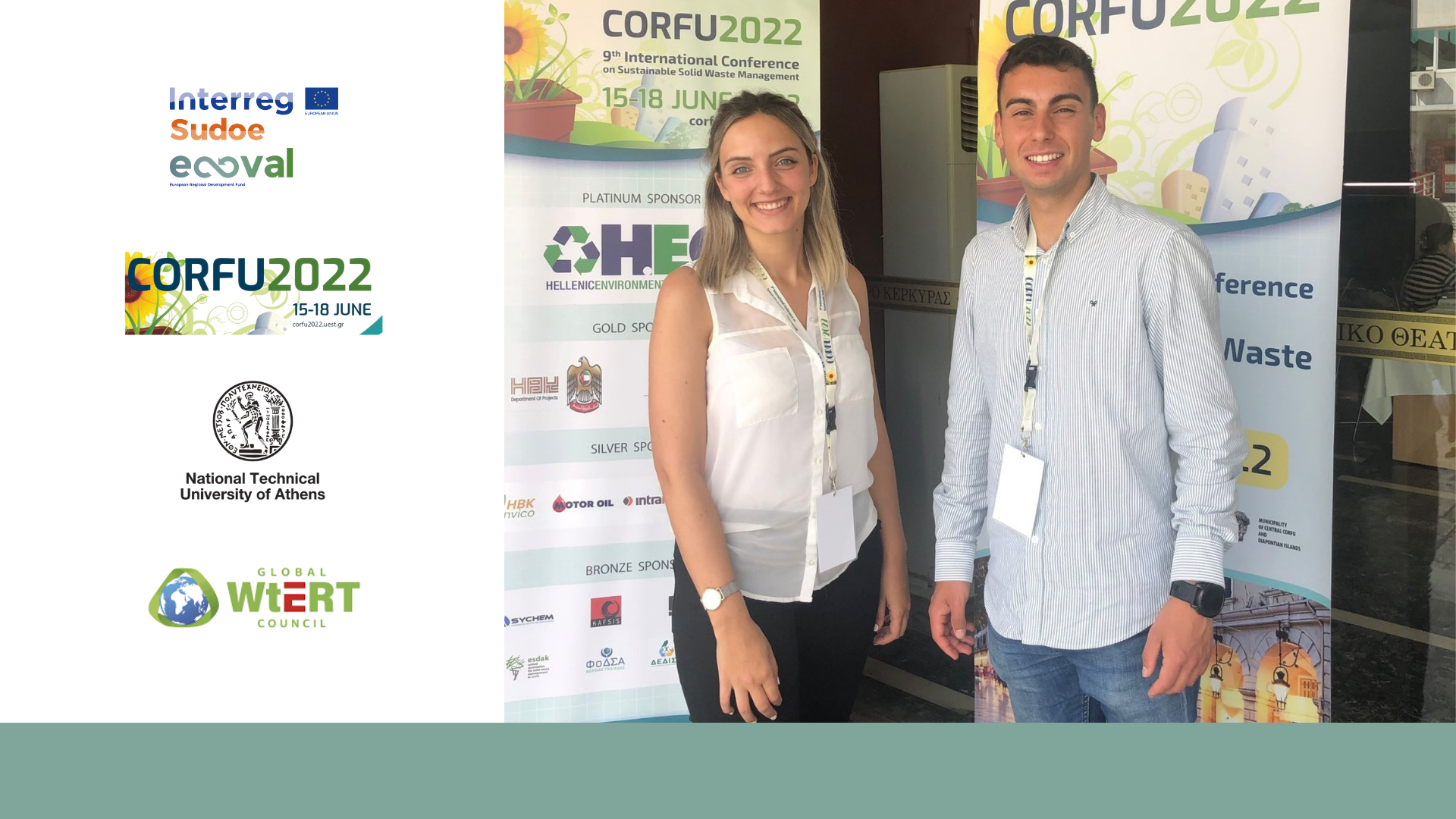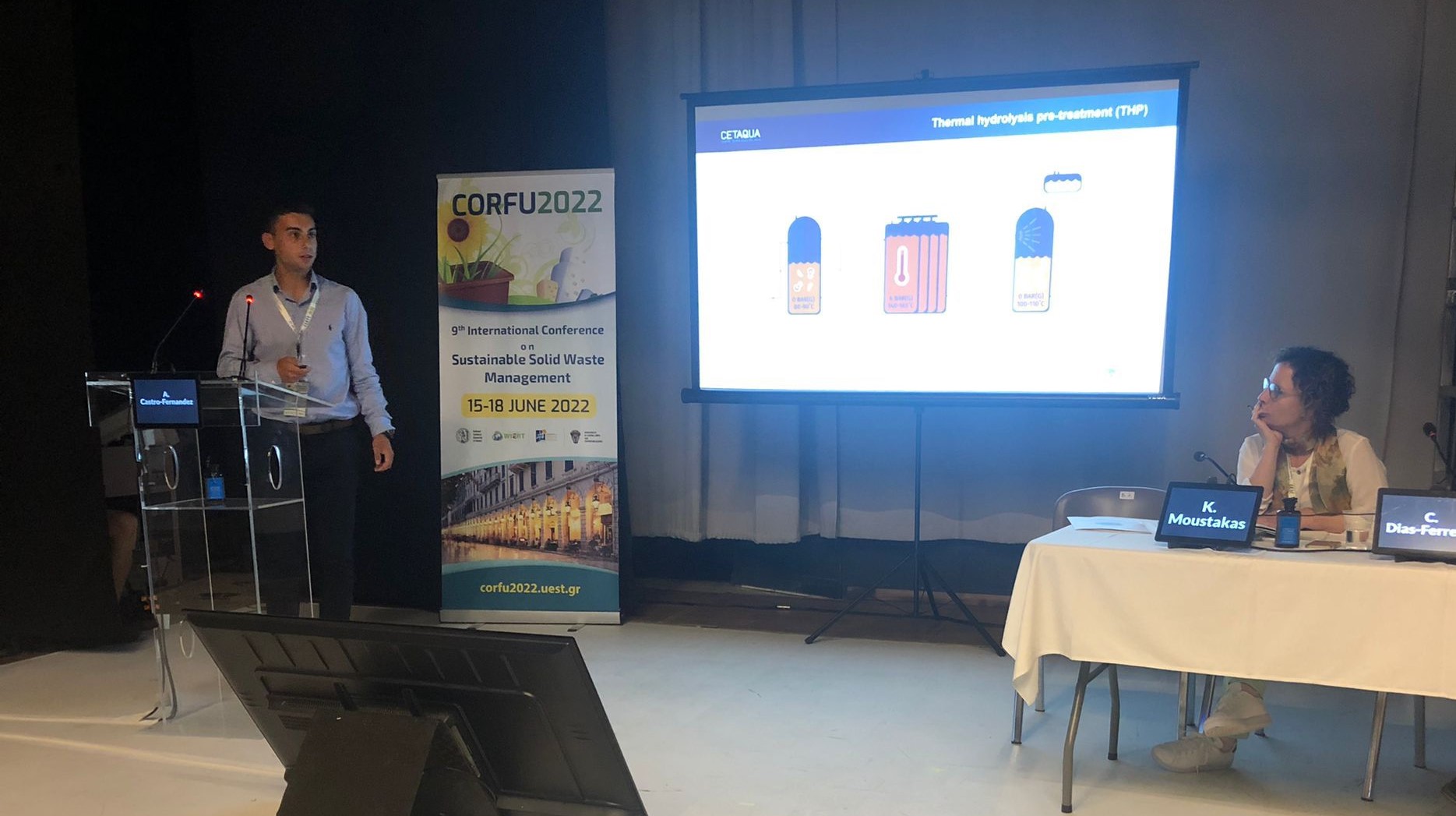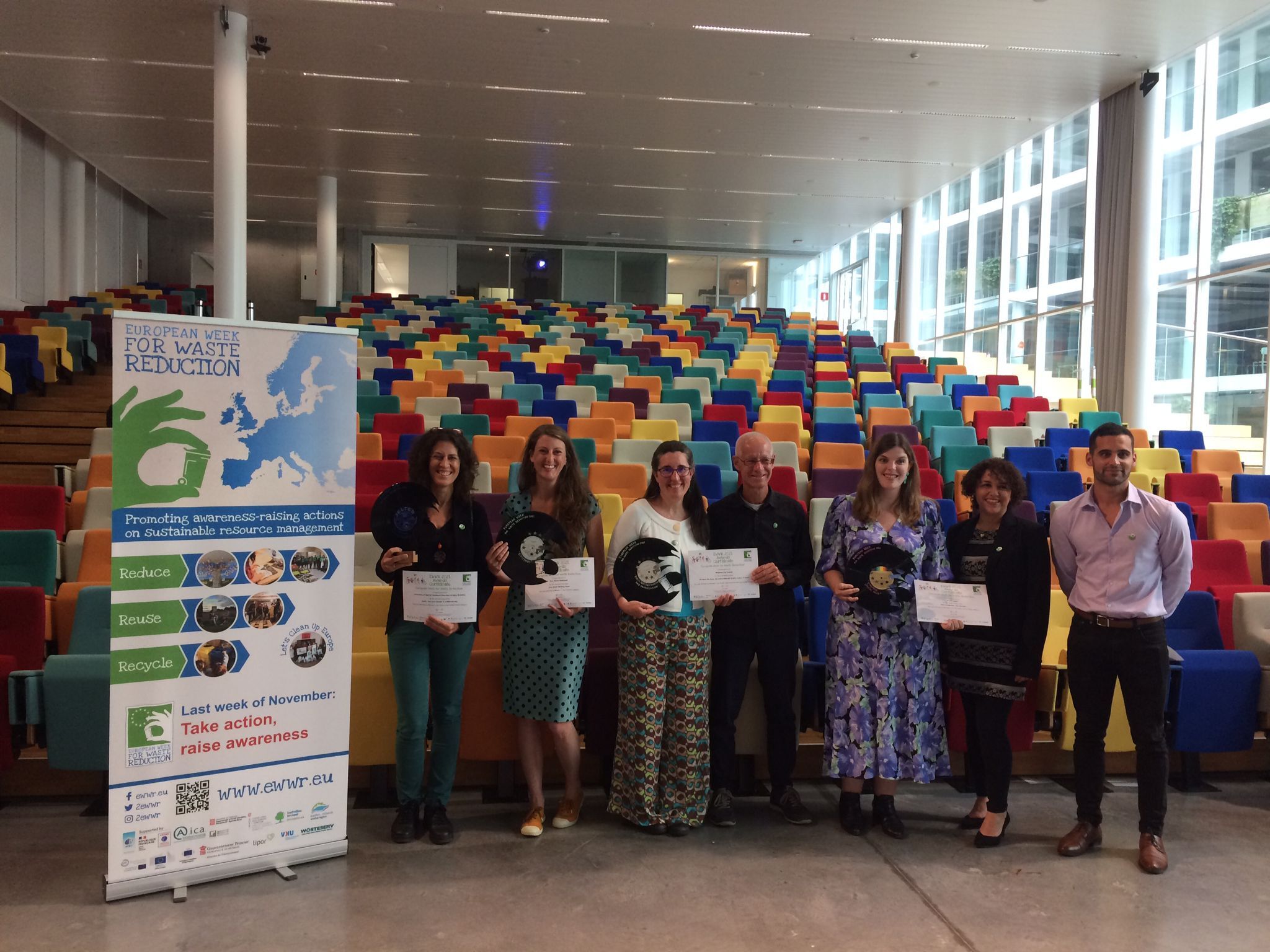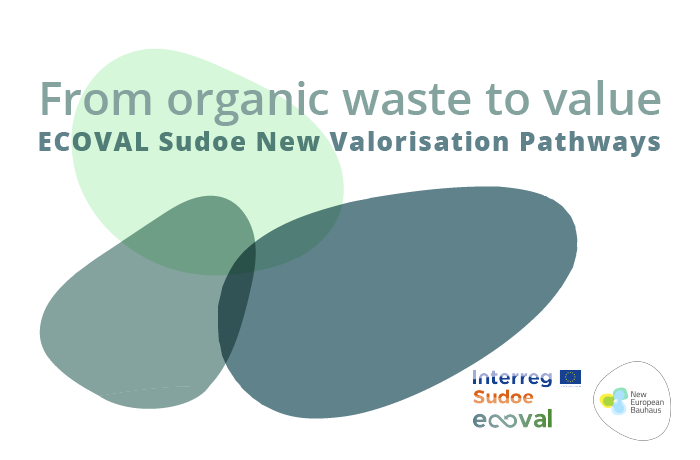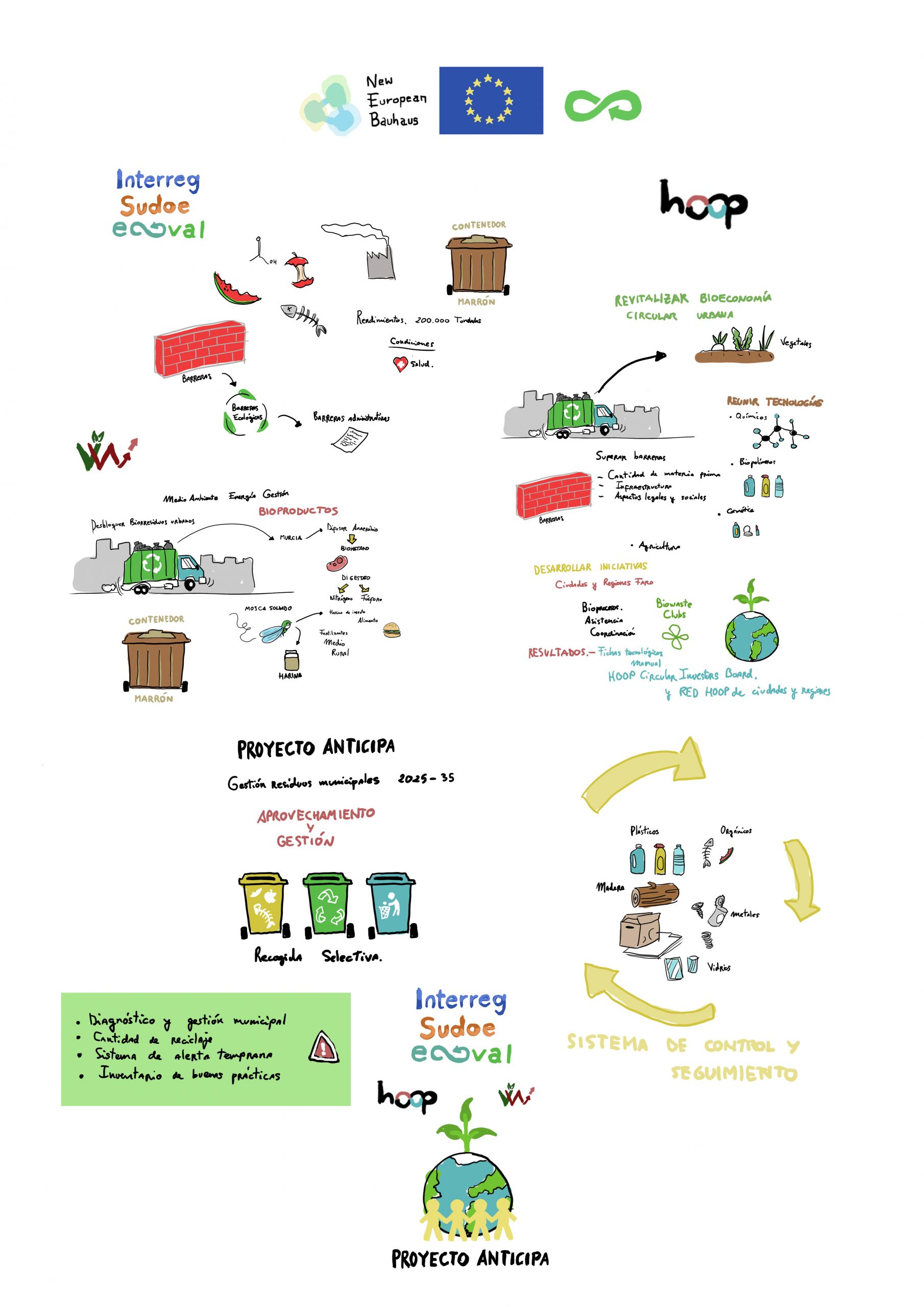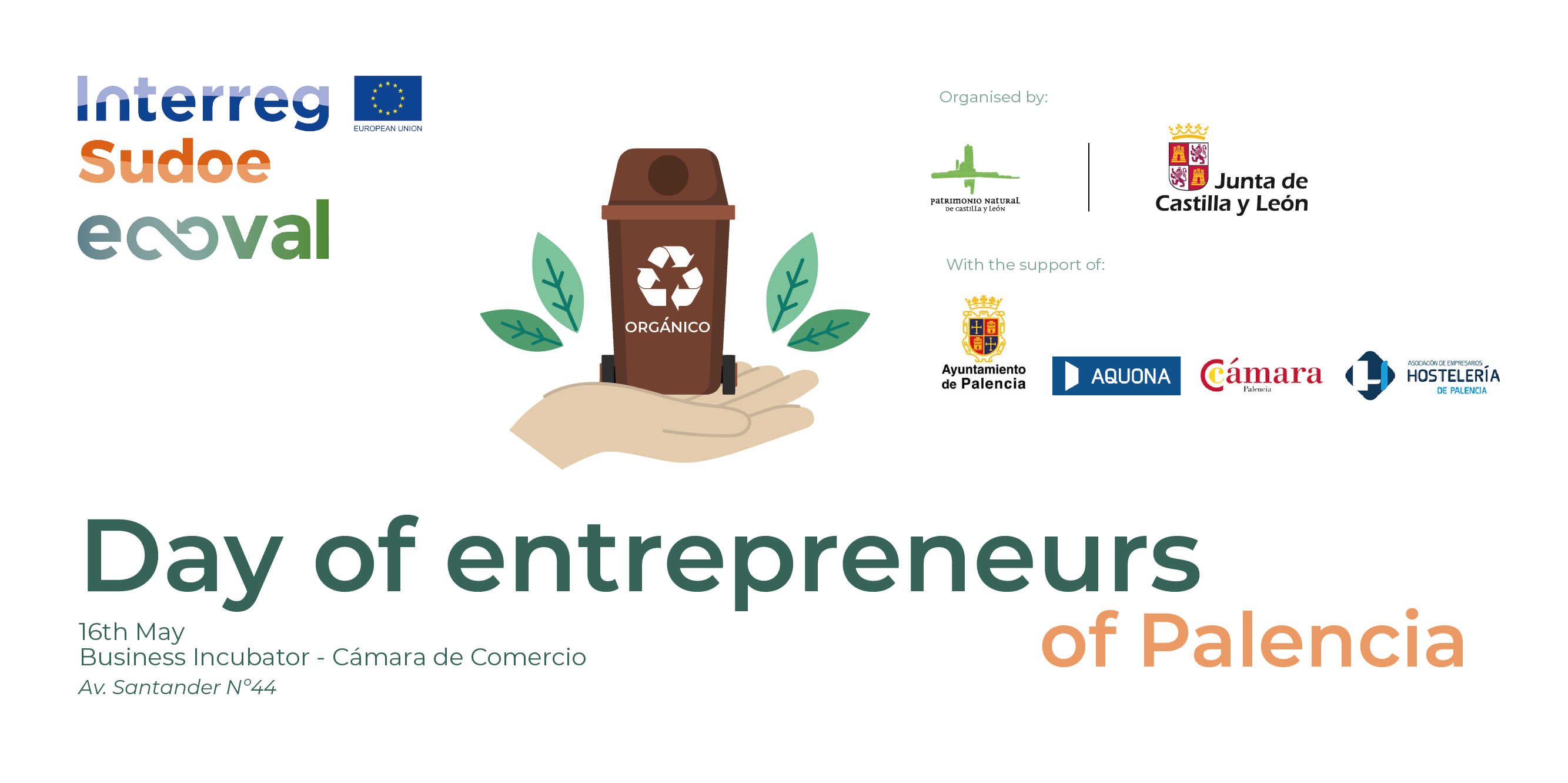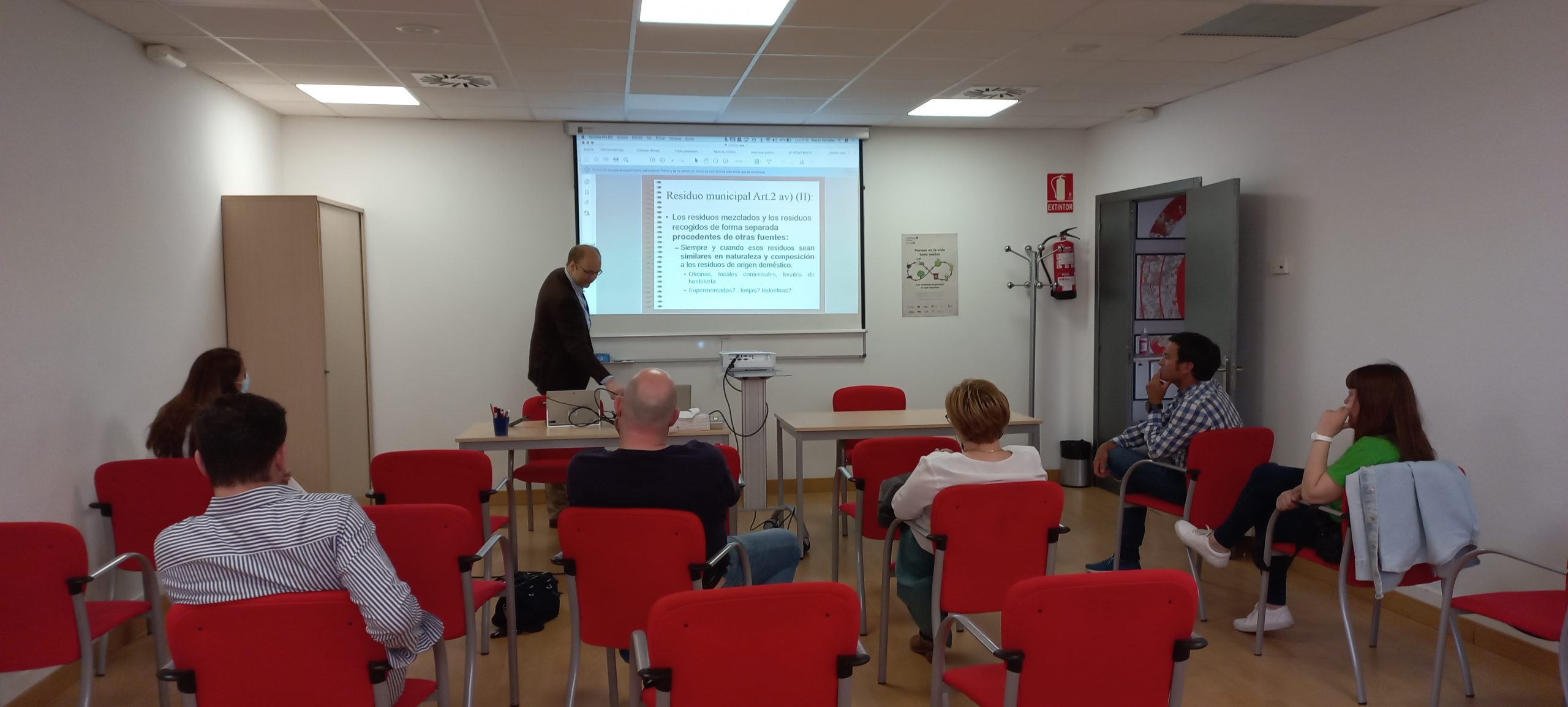
- The European ECOVAL project, led by Cetaqua, celebrates the final results presentation event.
- The event brought together more than 70 representatives from public administrations, universities and companies to discuss the potential of water in the circular economy.
The ECOVAL-SUDOE innovation project, led by Cetaqua and co-financed by the Interreg Sudoe Programme through the European Regional Development Fund (ERDF), held this morning the final event “Towards a circular management of urban bio-waste and sewage sludge“. This meeting, which brought together more than 70 attendees in Ourense, served to present the results and conclusions obtained in the two and a half years of the project. Armando Ojea, deputy mayor of the City Council of Ourense, and Iván José Vicente, general director of Viaquaopened the event by highlighting the collaboration and commitment of the City Council of Ourense in research projects such as ECOVAL that allow reducing the impact of waste, turning them into resources, putting the city of Ourense on the map of innovation and circular economy.
The event symbolises the closing of the ECOVAL project, which has shown that both sewage sludge and urban biowaste are two organic streams with enormous potential for the development of biofactories. biofactories. Compounds such as volatile fatty acids can be produced from them, which serve as renewable and sustainable raw materials in the chemical industry to obtain a wide variety of products: lubricants, paints, bioplastics or cosmetics, among others.
Furthermore, it has been demonstrated that the model can be replicated in industrial environments, for example in food industries such as canning or dairy, which are of great importance in the Galician economy. Therefore, ECOVAL has been a step forward for the implementation of biofactories or biorefineries, which is key in the transition towards a circular economy that allows the generation of goods while reducing dependence on fossil resources.
With European funding of around 1.5 million euros, the project successfully scaled up the technology for the production of high purity volatile fatty acids (VFA) from sewage sludge and municipal biowaste, developed business models that enable the industrialisation of the solutions and identified the legal barriers that hinder or prevent the implementation of these models.
ECOVAL is part of an international consortium formed by the University of Santiago de CompostelaFundación Patrimonio Natural de Castilla y León, Fundación Empresa-Universidad Gallega, INSA Toulouse, NereusThe project will boost R&D&I and will position Galicia as a benchmark in Europe in terms of circular economy.
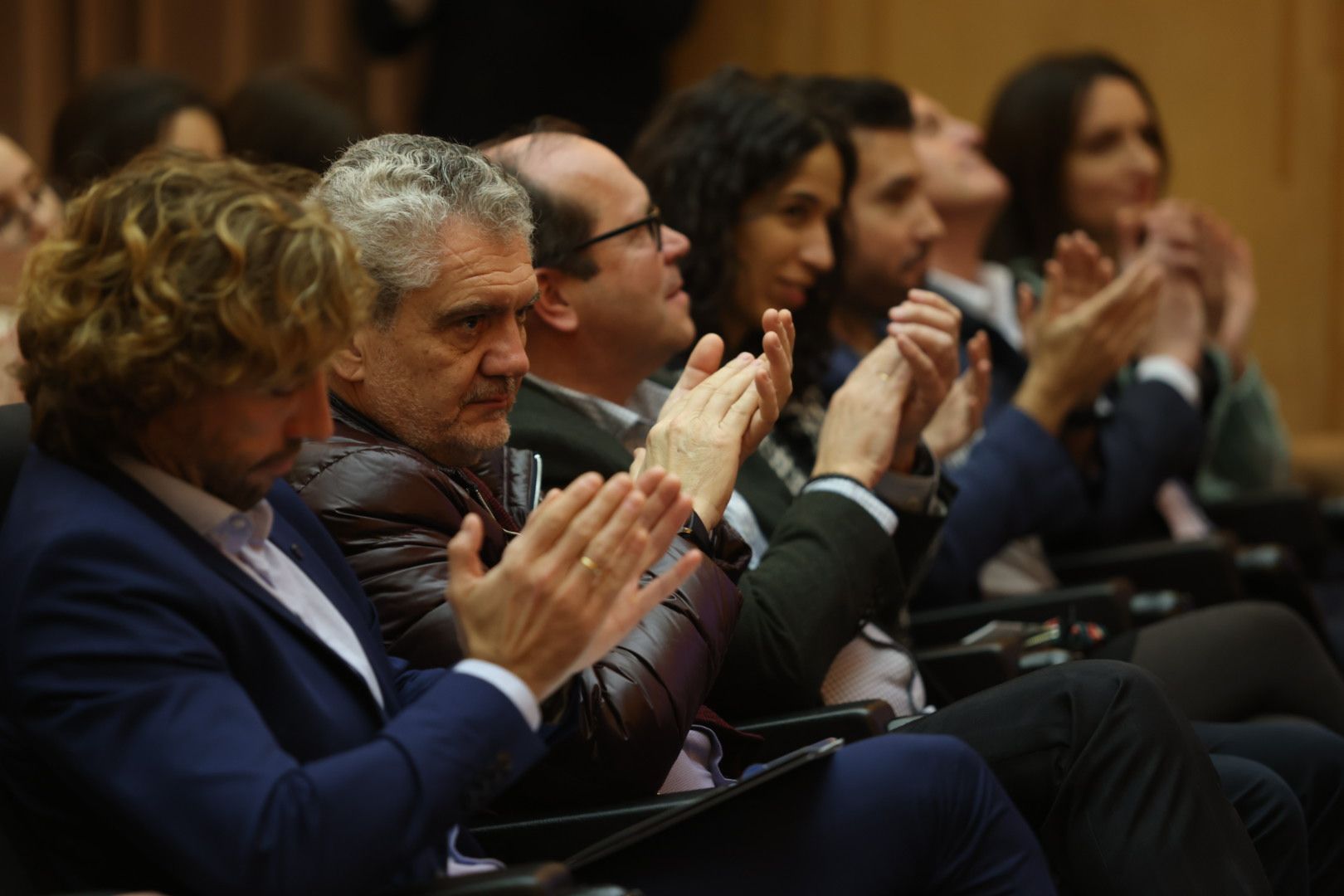
ECOVAL ends its research based on waste revalorisation
The presentations at the event were divided into three main blocks, in which leading personalities from different fields defended their commitment to transforming wastewater treatment plants into biofactories – efficient facilities for obtaining water, energy and materials – as a key element of the circular economy for the management of organic waste. The conference also analysed the past and present of urban biowaste and sewage sludge management, as well as its future prospects.
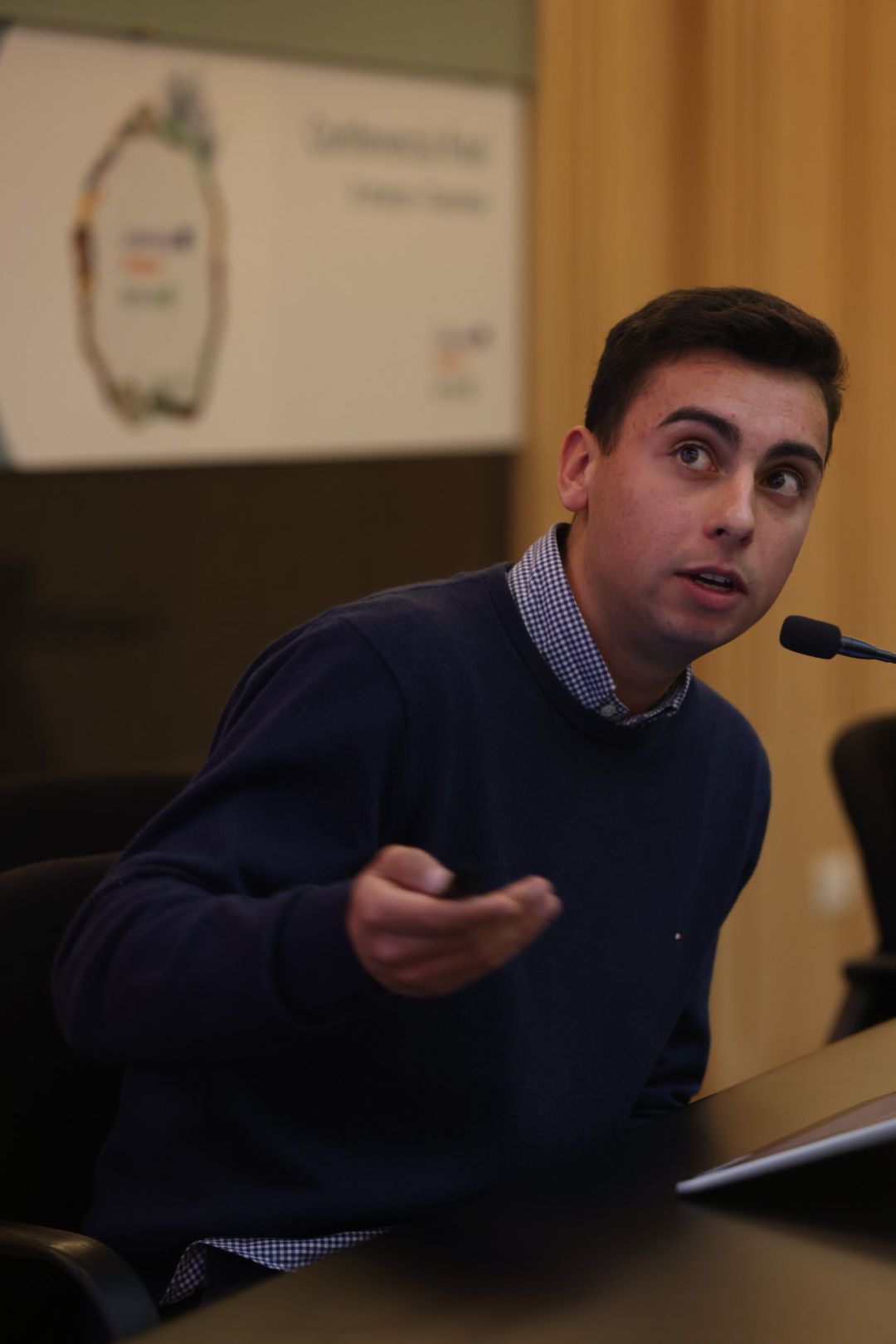
According to Ander Castro, Cetaqua’s Project Manager, “ECOVAL demonstrated the feasibility of producing volatile fatty acids with sufficient purity from a technical point of view to replace its current production from oil – and to replace it with sewage sludge and urban biowaste. However, further technological development is needed to optimise the process and to reduce the scale at which these solutions are economically profitable.
The round table, which closed the event, was moderated by Teresa Alvariño, manager of Cetaqua Galicia. It debated the future prospects for the valorisation of urban biowaste and sewage sludge from a public-private perspective, with the participation of Viaqua and Agroambthe Xunta de Galicia and the Diputación de Ourense.
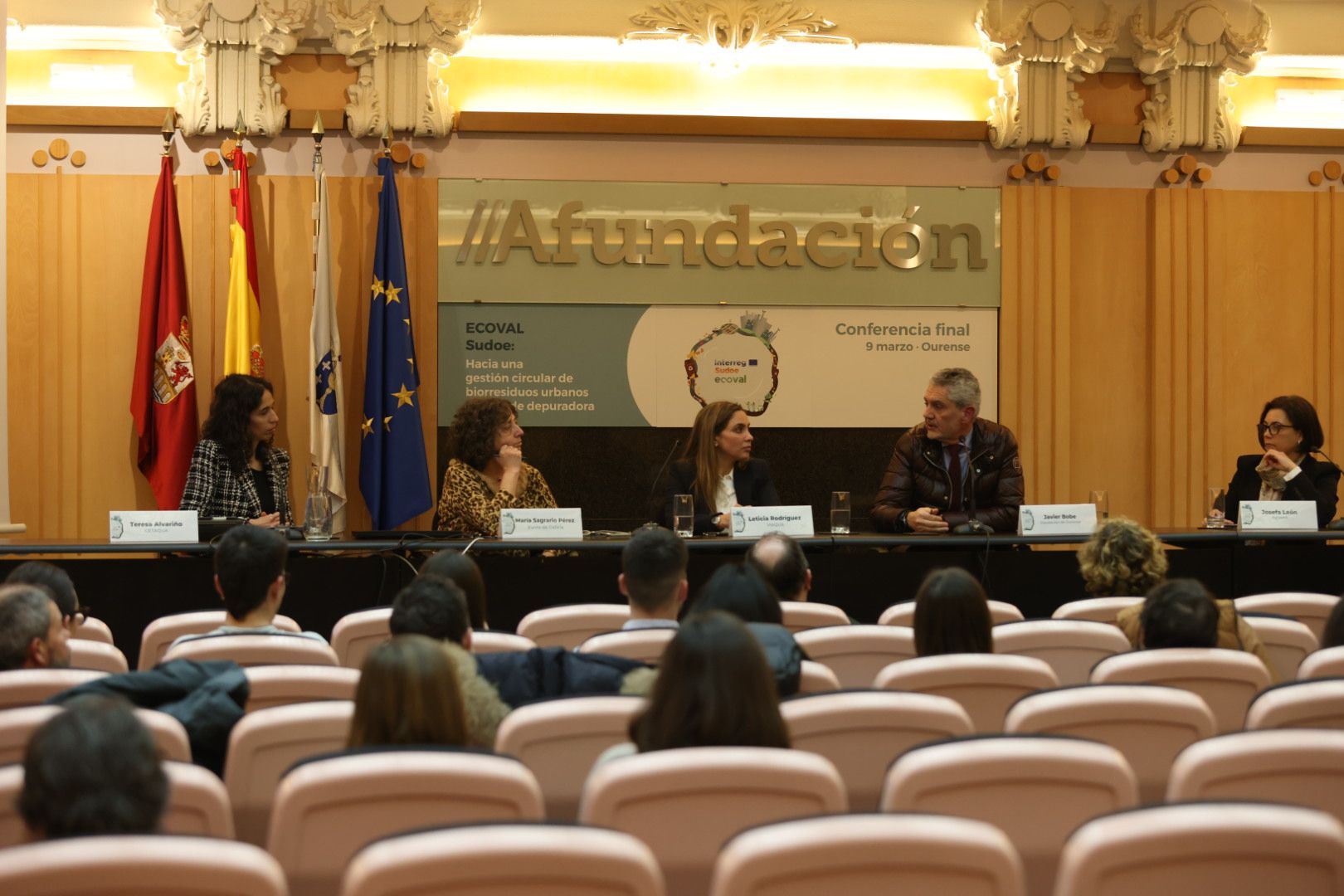
Leticia Rodríguez, director of Sustainable Development of Viaqua, stressed that to achieve the circularity potential of sewage sludge or biowaste, it is necessary to continue working on the development of new economic and management models where these high added value products have a place. To this end, Leticia states that “it is essential to improve collaboration, cooperation and agreement in order to achieve more stable public-private collaboration frameworks. Only in this way will we have a guarantee of success in facing the challenges that lie ahead of us”.
Gabriel Alén, delegate of the Xunta de Galicia in Ourense, closed the event and took the opportunity to highlight the opportunity to take advantage of European funds for optimal waste management, the importance of raising awareness among the population and the necessary innovation, which lands in Ourense thanks to projects such as the new VET Innovation Centre, which contains a module for the care of the natural environment.
Through projects such as ECOVAL, Cetaqua and Viaqua consolidate their commitment to biofactories as a key element to promote a circular economy model in the integral water cycle. In addition, the Ourense biofactory is also developing other R+D+i projects such as the project Biocenplasproject, which seeks to establish a sustainable model in the fish processing industry, or activities of the CIGAT Circular Joint Research Centre, which develops different strategies to decarbonise Galicia thanks to the conversion of waste into resources.

